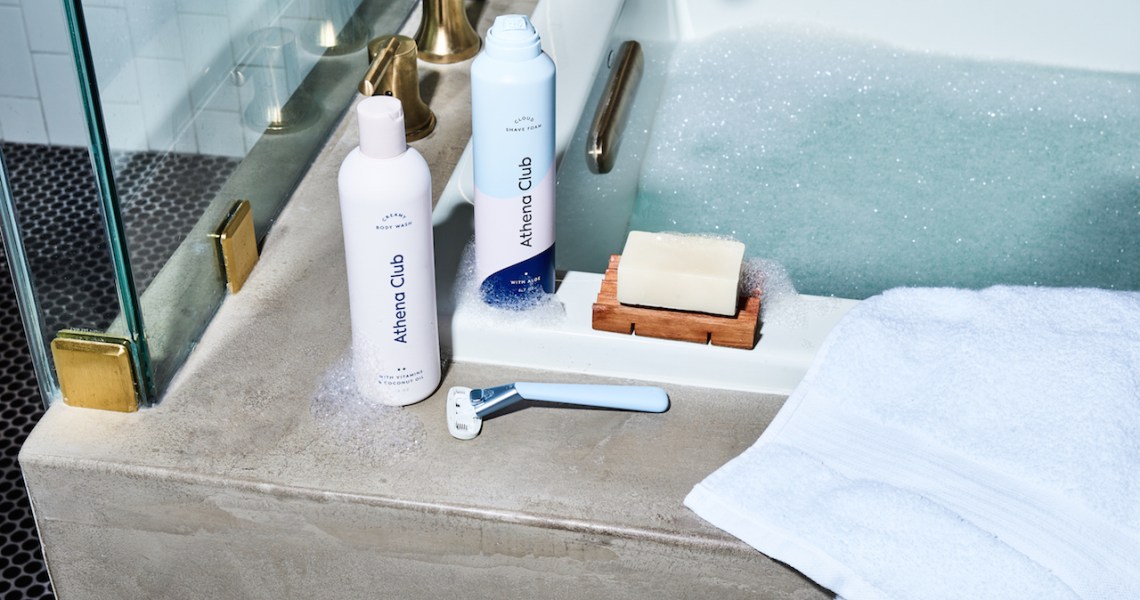In the women’s DTC personal and intimate care category, a winner-takes-all approach is starting to emerge.
On Tuesday, Athena Club expanded beyond its organic tampon subscription service to sell 14 items across three categories, including razors, shaving cream, body lotion, multivitamins, probiotics, menstrual cups and pads. By doing this, Athena Club is integrating itself into categories populated by brands like Billie, Flamingo, Lola and Hers. The brand opted to launch into new categories with several products in each to break away from what Maria Markina, Athena Club co-founder, called a “DTC playbook” of launching singular products.
“If a brand sells only one product, it makes it hard to sell more because they are known only for that product,” said Markina. “Instead of wanting to generate every buzz with a new product every month, we wanted to establish ourselves as a one-stop shop. Then beyond that, we’ll expand our product lines [based on] customer feedback.”
As the DTC women’s personal care space has matured, the competition has steepened. Brands and retailers have grown more comfortable with blurring categories and aisles. For example, Flamingo recently launched a body-hair conditioning oil, despite being born as a hair-shaving brand, and Ulta now sells sexual wellness and travel accessories. Athena Club is banking on the fluidity of consumer appetite to buy body lotion and deodorant from a brand that previously only sold tampons.
Athena Club has raised $3.8 million in venture capital and has over 10,000 subscribers after launching in July 2018, said Markina. She declined to comment on overall sales but said new launches are expected to contribute 200% month-over-month sales growth during the next quarter, Athena Club expects to achieve an 80% customer retention rate in 2020.
“The direct-to-consumer model could have a very significant impact on the women’s intimate and personal care market,” said Nathan Richter, analyst firm Wakefield Research senior partner. “In recent years, direct-to-consumer startups have emerged and offered new ways of retail, such as subscription models, along with innovations such as organic and environmentally friendly products.”
But Athena Club is also doing it in a big way, by launching two full categories instead of one-off products every few months.
Ad position: web_incontent_pos1
“There is a bit of a DTC playbook that everyone follows where they [regularly] launch new products that sometimes feel inauthentic,” Markina said. “It’s pushing products that do not feel related to the brand, and it feels [to me] like a strategy to boost sales.”
To promote the expansion, Athena Club sent a pre-launch announcement to its existing 10,000 customers through an email on Friday, following that up on Tuesday with an email and social media push that included seeding product to 30 unpaid micro-influencers.
“People don’t want to have to commit to several different brands and manage multiple subscription options,” Markina said. “Customers want a brand that doesn’t sell traditional CPG products, that offers ingredient transparency and that they can build a connection with around values and community.”




